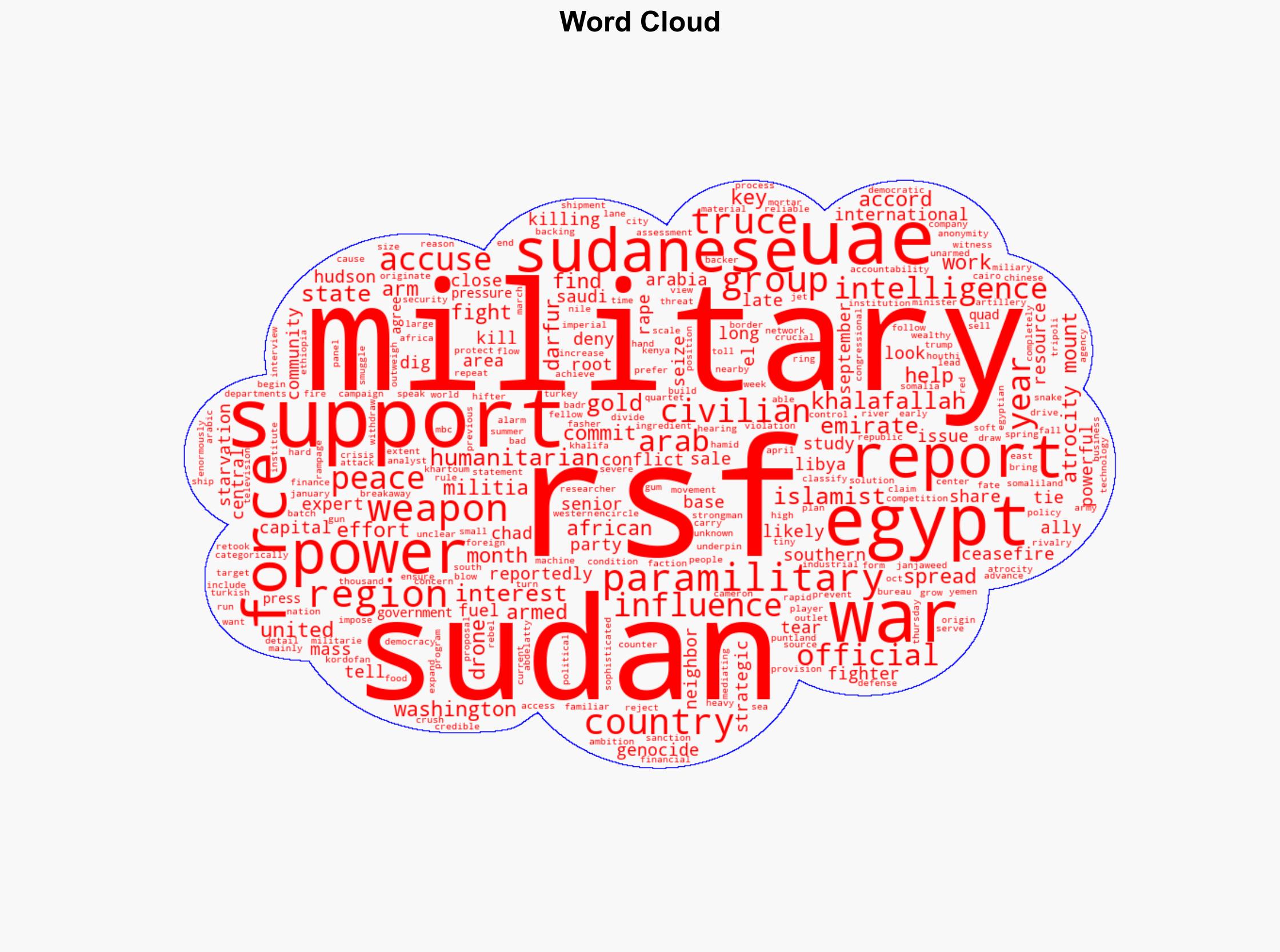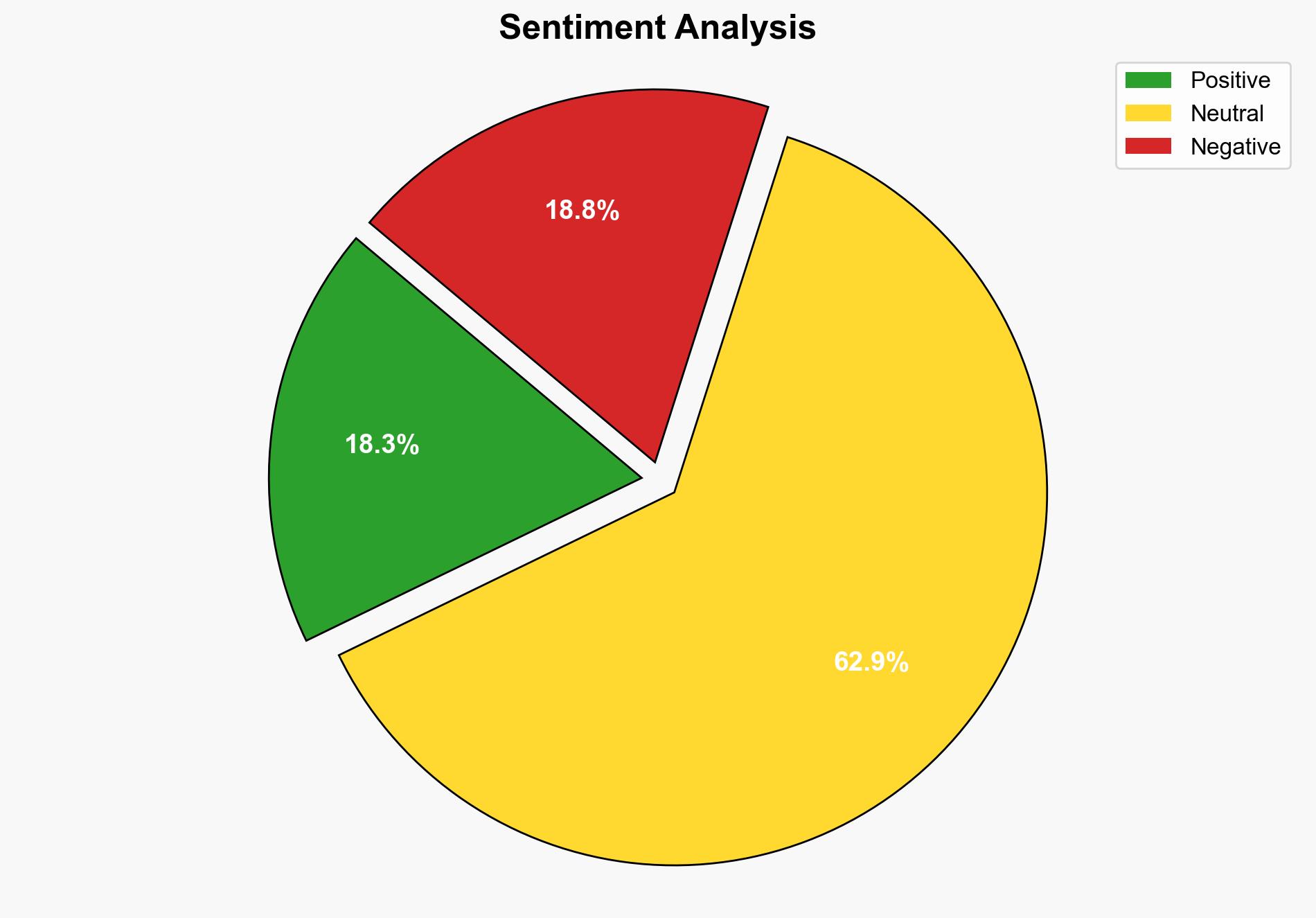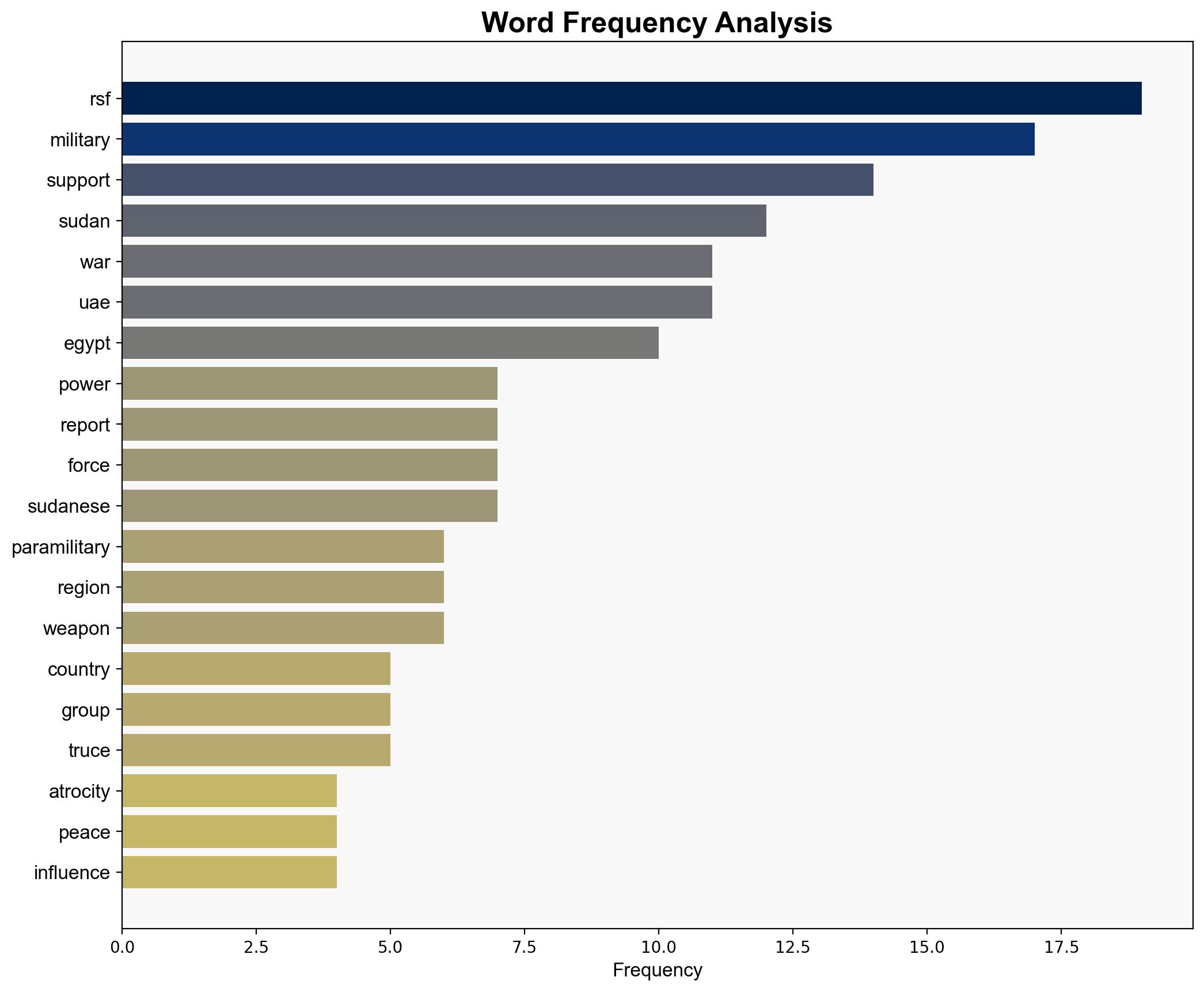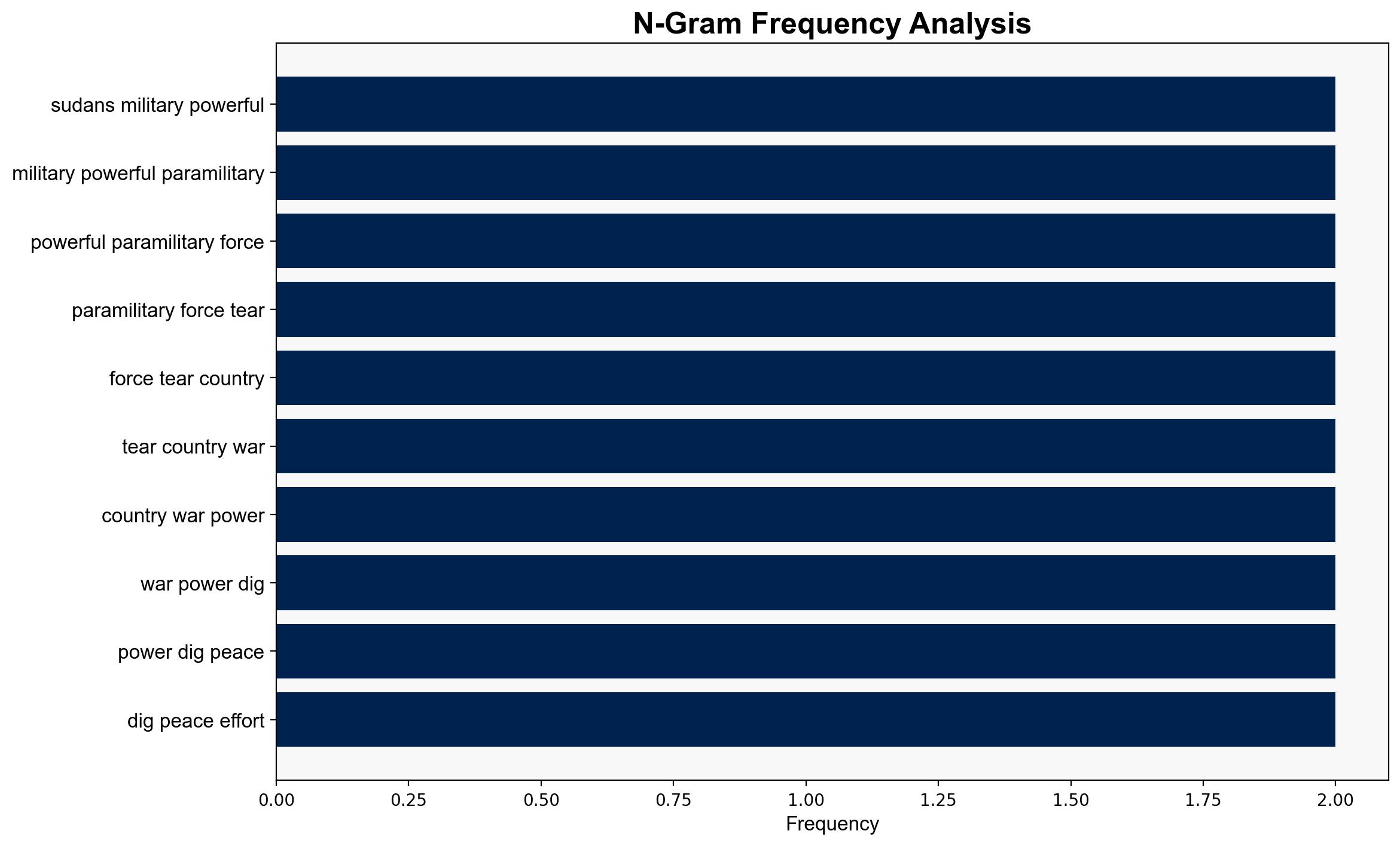Outside powers’ reported backing for Sudan’s warring sides helps fuel fighting as atrocities mount – ABC News
Published on: 2025-11-07
Intelligence Report: Outside powers’ reported backing for Sudan’s warring sides helps fuel fighting as atrocities mount – ABC News
1. BLUF (Bottom Line Up Front)
The strategic judgment is that external support to Sudan’s warring factions is exacerbating the conflict and humanitarian crisis. The hypothesis that the United Arab Emirates (UAE) is significantly backing the Rapid Support Forces (RSF) is better supported by the intelligence. Confidence level is moderate due to conflicting reports and denials. Recommended action includes diplomatic engagement to verify claims and pressure external actors to cease support, alongside humanitarian intervention to mitigate civilian suffering.
2. Competing Hypotheses
1. **Hypothesis A**: The UAE is providing substantial military support to the RSF, thereby intensifying the conflict in Sudan.
2. **Hypothesis B**: The UAE’s involvement is limited or non-existent, and reports of support are exaggerated or misinterpreted.
Using Analysis of Competing Hypotheses (ACH), Hypothesis A is more likely due to intelligence reports detailing weapon shipments and the strategic interests of the UAE in countering Islamist groups. Hypothesis B is weakened by the lack of corroborative evidence for UAE’s denial and the pattern of UAE’s regional influence strategies.
3. Key Assumptions and Red Flags
– **Assumptions**: It is assumed that intelligence reports are accurate and not influenced by bias or misinformation. The UAE’s strategic goals align with supporting non-state actors.
– **Red Flags**: UAE’s categorical denial and lack of independent verification of weapon shipments. Potential bias in intelligence sources and reliance on anonymous officials.
– **Blind Spots**: Limited visibility into the internal decision-making processes of the UAE and RSF.
4. Implications and Strategic Risks
The continuation of external support risks prolonging the conflict, increasing civilian casualties, and destabilizing the region further. This could lead to a humanitarian crisis with global repercussions, including refugee flows and regional instability. The involvement of external powers could escalate into broader geopolitical tensions, particularly if countered by other regional actors.
5. Recommendations and Outlook
- Engage in diplomatic efforts with the UAE and other involved nations to verify and address the allegations of support.
- Implement targeted sanctions on entities proven to be supplying arms to Sudanese factions.
- Enhance humanitarian aid and support for displaced populations to mitigate the crisis.
- Scenario Projections:
- **Best Case**: Diplomatic efforts succeed, leading to a ceasefire and reduction in external support.
- **Worst Case**: Escalation of conflict with increased external involvement, leading to regional instability.
- **Most Likely**: Continued low-intensity conflict with sporadic international interventions.
6. Key Individuals and Entities
– Hamid Khalafallah
– Khalifa Hifter
– The United Arab Emirates
– Rapid Support Forces (RSF)
7. Thematic Tags
national security threats, regional conflict, humanitarian crisis, geopolitical influence





